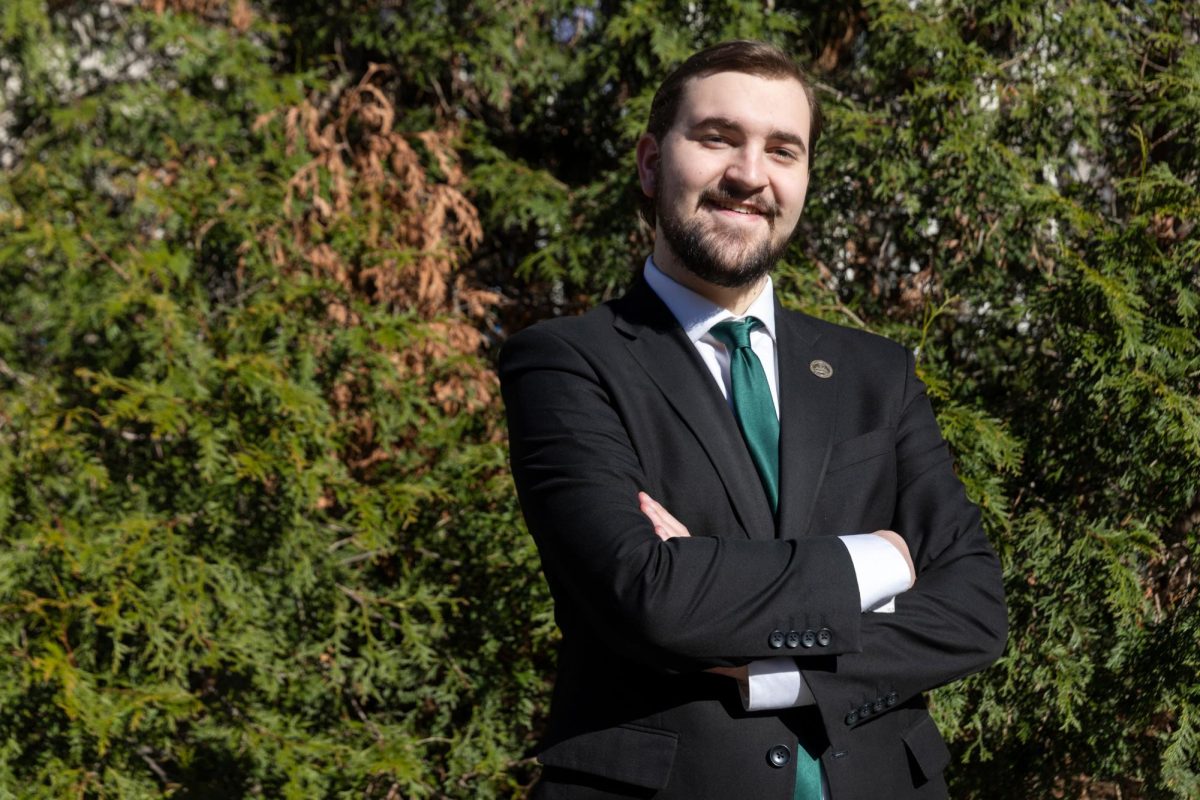Candidates for the Student Association’s top positions this year have pledged to accomplish many goals if elected to the posts, from a free student Metro pass to abolishing the GW Police Department.
But not all of those goals are grounded entirely in fact. The Hatchet looked through each candidate’s platform to identify inaccurate or misleading information and provide additional context about the candidate’s goal.
Candidates for president
Bishop Walton
Walton, a sophomore and former SA Senate secretary, has called for adding an active shooter protocol to course syllabi.
Fact check: Course syllabi already require faculty to reference GW’s safety and security policy, which stipulates that students should seek shelter in place in case of an emergency. In case of immediate danger, students are expected to follow their building’s evacuation procedures and meet at a predetermined location, the protocol states.
Christian Zidouemba
Zidouemba, a sophomore, has pledged to advocate for pairing students with advisers beyond freshman year “to facilitate stronger and more personal relationships” with students in the Columbian College of Arts and Sciences.
Fact check: Officials transitioned students in CCAS to an individual adviser system at the beginning of the academic year after piloting the system last spring.
Drew Amstutz
Amstutz, a sophomore and the SA’s vice president for public affairs, said he would lobby for newspaper subscriptions for students, which he has characterized as one of many “basic student amenities” to which students lack access.
Fact check: Students can read text versions of current articles from more than 500 U.S. newspapers – including The New York Times, The Wall Street Journal and The Washington Post – and more than 800 international papers through GW Libraries’ newspaper databases.
George Glass and Georgie Britcher
Both Sen. Glass, U-at-Large and a junior, and Britcher, an SA senior policy adviser and a sophomore, have called on the University to give students unlimited free access to the Metro through WMATA’s U-Pass program.
Fact check: Students have advocated for U-Pass since 2016 when almost three-quarters of students voted to approve the pass on that year’s SA election ballot. But negotiations over the policy between GW and WMATA have fallen through because each side refuses to budge on key points.
The University has made clear that the pass will be paid for by a $260 fee tacked onto tuition bills, which it said in 2016 is neither “feasible” nor “fair.” Administrators have instead tossed ideas around for an opt-in system of which interested students could take advantage.
But WMATA officials have held firm on keeping the program mandatory for all students at schools that adopt the pass, adding that an opt-in or opt-out system may render the program unprofitable.
The UPass’s full cost is equivalent to 130 regular off-peak rides from Foggy Bottom to any other station in the District and about 115 peak-fare rides.
Howard Brookins
Brookins, an undergraduate-at-large SA senator and a junior, has pushed for a student-run food cooperative near freshman residence halls on F Street like Thurston Hall, citing a report that calls those areas a food desert.
Fact check: The report considers any place a food desert if it is located more than half a mile from the nearest full-service grocery store, the household median income is less than $48,475 and more than 40 percent of households lack access to a vehicle. The researchers cite Census data, which finds that students living in residence halls have a median income of $0 to $20,000, but that figure is misleading – the median family income of students is roughly $180,000 as of 2017.
Candidates for executive vice president
Andy Liaupsin
One of Liaupsin’s signature platform points is to abolish GWPD and hire Student Access Monitors – students currently charged with monitoring tap access to residence halls – to patrol campus at night, leaving “serious” security threats to the Metropolitan Police Department.
Fact check: Student workers have expressed reluctance about taking on roles formerly held by GWPD. Last year, officials revamped RA responsibilities to include nightly patrols of residence halls – a task typically assigned to GWPD officers – which some RAs said could hurt their relationships with residents.
Liaupsin’s proposal calls for expanding the number of SAMs employed at the University to replace GWPD. But officials have already struggled to hire enough SAMs to ensure all residence halls are monitored at all times – a Hatchet analysis in fall 2018 found that some halls lacked the presence of a SAM more than 95 percent of the time.
Brandon Hill
Hill, CCAS-U and a sophomore, has advocated for a scholarship for students who retake a course through the first-year forgiveness program to ensure students in need do not bear a financial burden for retaking the class.
Fact check: Full-time students who repeat a course in accordance with the policy and remain below the 18-credit cap – or 19-credit cap, for students in the School of Engineering and Applied Science – do not incur any additional cost for taking advantage of the freshman forgiveness policy. Hill’s scholarship would apply only to part-time undergraduate students – about 10 percent of the student population – seeking degrees.








